Healthcare innovation stakeholders co-develop solutions to make curative therapies accessible to patients, propose new pilot project
CAMBRIDGE, MASSACHUSETTS—The NEWDrug Development ParadIGmS (NEWDIGS) initiative at the MIT Center for Biomedical Innovation (CBI) hosted a three-day Design Lab for its Financing and Reimbursement of Cures in the US (FoCUS) project, which is aimed at developing strategies to make durable and potentially curative, but high cost, therapies accessible to patients and sustainable by the healthcare system.
The Design Lab, held April 10–12 at MIT, was the latest in a series that builds on the efforts of ongoing working groups. 62 participants provided diverse perspectives including patient advocacy; biopharmaceutical development, access and delivery; law, policy, clinical care, investment, as well as views from across a broad range of payer segments. Project leaders have dubbed the emerging collection of methodologies and tools “Precision Financing” to connote the care needed to tailor the design of payment mechanisms to align with specific product and disease characteristics, and associated risks and financial challenges.
“We’re focused on creating precision financing solutionsfor durable and potentially curative therapies with large, upfront, acute costs whose benefits accrue over time,” said Mark Trusheim, Strategic Director for the FoCUS project. “Not on drug pricing, assessing or setting value, or negotiating specific prices for specific products. And we think we’re at an inflection point—we’re ready to move from designing solutions to sharing them and helping organizations apply these new principles in the real world.”
During the Design Lab, participants proposed a real-world pilot project involving multiple orphan disease products and a cohort of payers, specifically to test the emerging financing strategy of contracted milestone payments. A team to design the pilot is being formed, with initial work to begin shortly.
The first day of the Design Lab focused on areas of common interest to the working groups and each of the stakeholder groups, as well as providing a preview of the project’s formal findings.
Two early presentations focused on the potential magnitude of the need and its implications for Medicaid, a major stakeholder in the healthcare system. Daniel Mytelka, FoCUS Director for Simulation & Policy Research, shared models of actuarial risk and their related policy implications for payers. Because of the complexity of the system and the unpredictability of players’ reactions, Mytelka advocated “developing an intuitive sense of what to expect and how to react” based on more robust information.
Mike Ciarametaro, Vice President, Research for the National Pharmaceutical Council, shared his work group’s thinking about how the Medicaid system will react to curative therapies—a difficult challenge given the diverse implementation across states, and the demands of multiyear payment contracts.
J. Russell Teagarden, Senior Health Care Practitioner and Independent Advisor on the project, discussed the effort to identify payer segments to better understand what precision financing strategies fit best with their requirements. Though there is a temptation to group payers in new categories based on financing strategies, he said, there is also the risk of disorienting payers who already may not identify with those categories.
Kelly Munger, Senior Vice President, Group Reinsurance at SCOR, explained how the reinsurance industry engages with insurers and payers in the healthcare market to help them manage their financial risk. Many saw the reinsurance industry a key to enabling new financing strategies as new classes of medicine become available.
Finally, Collin Young, Director, Drug Development Pipeline Research for FoCUS, shared an updated analysis of the pipeline of new drugs—their status, potential patient populations, and likelihood of reaching marketability—giving attendees a sense of the magnitude and timing of the precision financing needs ahead.
The following two days comprised detailed work in Precision Financing strategies for gene therapies and oncology (each through simulated products as models). In order to encourage open dialogue and cross-stakeholder collaboration, those days were held under confidentiality agreements and the Chatham House Rule, while also strictly observing guidelines for antitrust protections.
The workgroups agree that the development of detailed data and thorough exploration of financing strategies, since the project’s launch in 2016, has made a once intractable challenge seem more manageable. “By smoothing out some of the risks ahead,” said Trusheim in concluding remarks, “we’re making them seem more like a rising tide than a tsunami.”
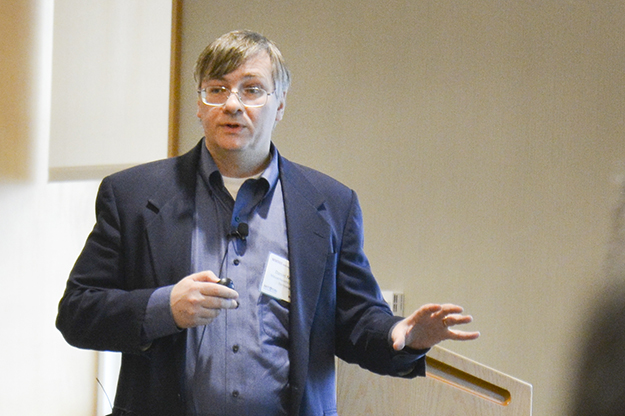
Daniel Mytelka, FoCUS Director for Simulation & Policy Research
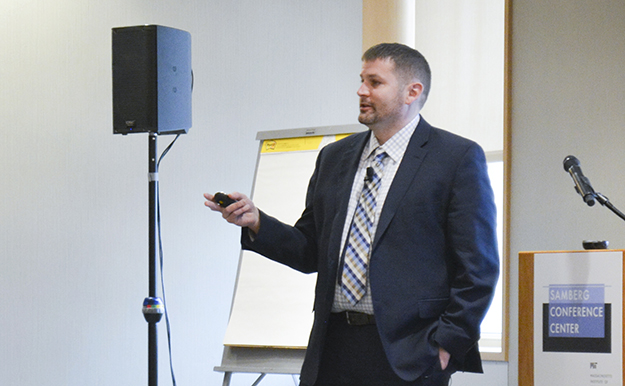
Mike Ciarametaro, Vice President, Research for the National Pharmaceutical Council
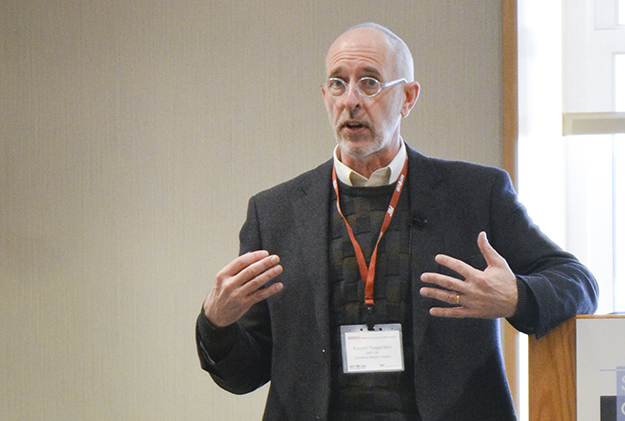
J. Russell Teagarden, Senior Health Care Practitioner and Independent Advisor to FoCUS
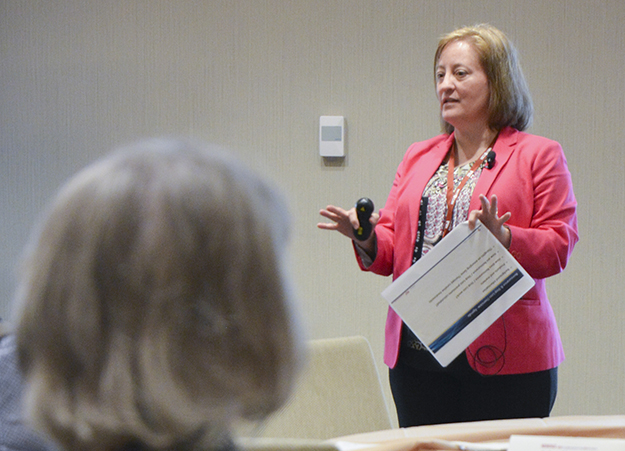
Kelly Munger, Senior Vice President, Group Reinsurance at SCOR
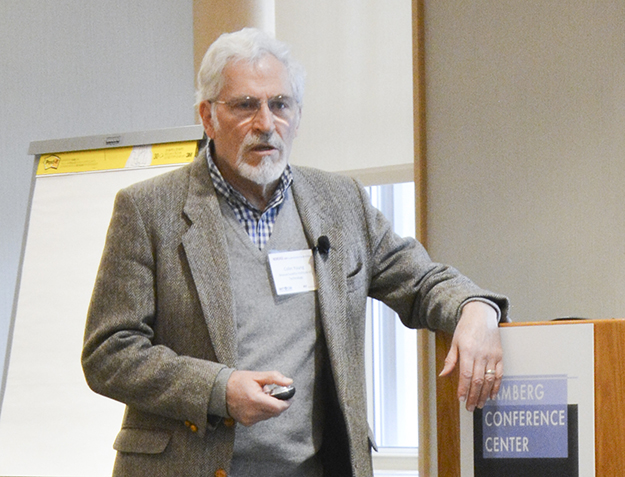
Collin Young, Director, Drug Development Pipeline Research for FoCUS
Contact
MIT NEWDIGS
Deborah Young
Operations Director
debyoung@mit.edu
617-324-7756
About MIT NEWDIGS
The NEWDrug Development ParadIGmS(NEWDIGS) initiative, in the MIT Center for Biomedical Innovation (CBI) is an international “think and do tank” dedicated to helping biomedical innovation benefit all healthcare stakeholders faster and reliably. NEWDIGS designs, evaluates, and initiates advancements that are too complex and cross-cutting to be addressed by a single organization or market sector. Its members include global leaders in research, development, insurance, regulation, and patient advocacy. For more information, visit http://newdigs.mit.edu.
